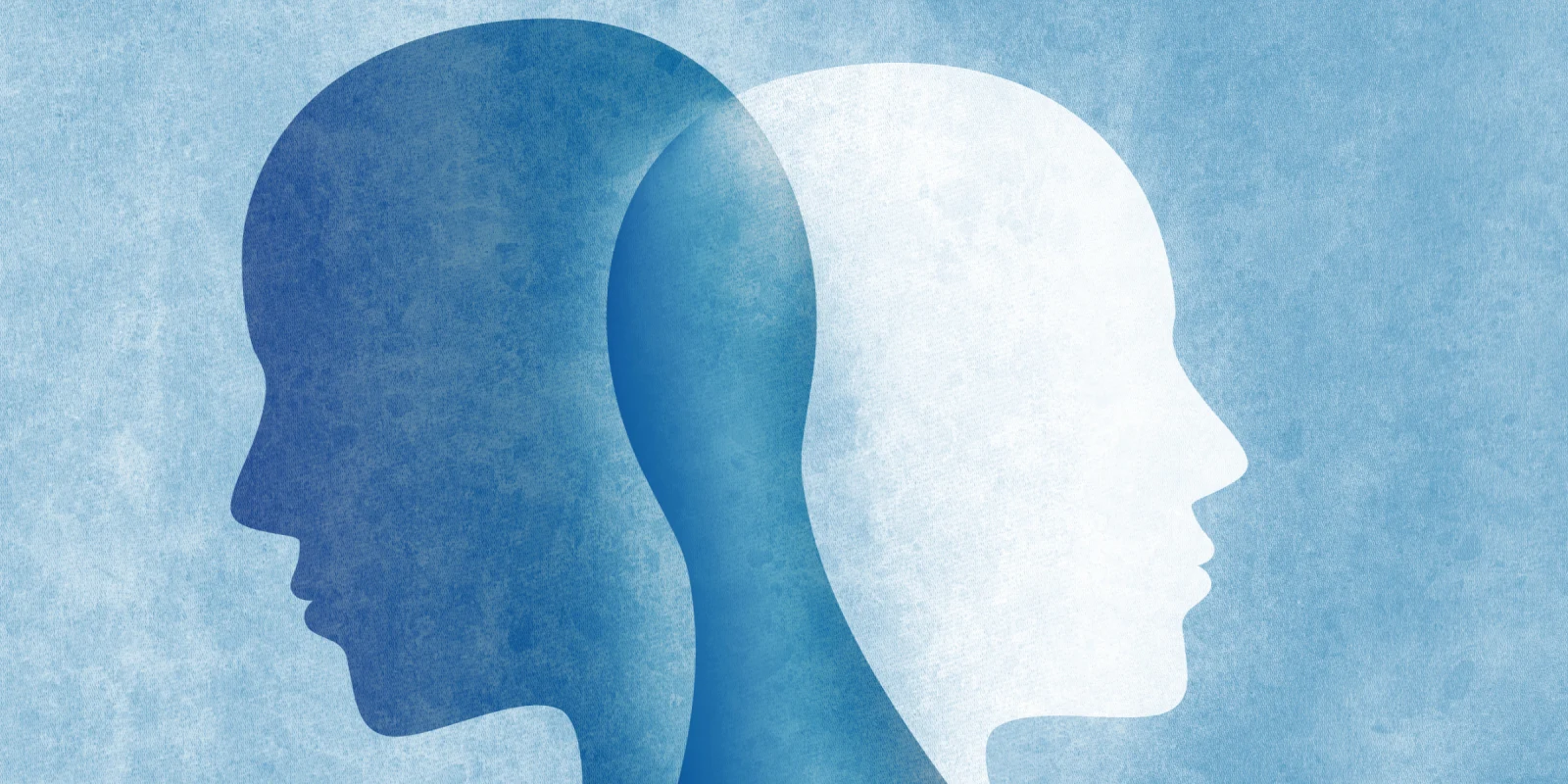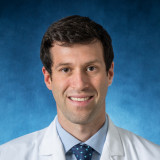Sitting with my team before rounds early this summer, a notification popped up on my phone that resonated through the room – “Simone Biles withdraws from team all-around final due to mental health concerns.” In a room of psychiatry trainees, this news was both surprising and close to home. We sat with our thoughts for a moment, and then got on with our day on the inpatient ward.
But as the Olympics played out over the ensuing weeks, I kept coming back to this moment, and the familiar feelings it had stirred up. I thought about my own experience as a teenager, training with elite swimmers in a small corner of North Baltimore, and a conversation I had with my coach at the time. I was struggling with the pressure of swimming combined with the stressors of school and nervously told him that I needed some time away from swimming to focus on other interests. And to my surprise, rather than reprimanding me, he said he was glad. He said that I wasn’t really going anywhere in swimming and that without other interests I would find myself lost at the end of my swimming career with a big gaping hole where swimming had been and nothing to fill it with. “Many athletes are completely lost when it’s over,” he told me, “you’ll be better off focusing on other things.”
The struggles that Biles and other athletes divulged also reminded me of the recent documentary, “The Weight of Gold,” featuring Michael Phelps and several other prominent Olympians, which highlights the mental health struggles many Olympic athletes endure. The movie is a testimonial to the difficulties elite athletes face, and the lack of support traditionally available to them. A recent study found that as many as 16% of elite athletes experience suicidal ideation during or shortly after their career, reinforcing the concerns brought forward in the documentary.
But as the Olympics continued and more athletes came forward to share their struggles with mental health – Katherine Nye, a U.S. weightlifter, Ben Stokes, an English cricketer, Adam Peaty, an English swimmer, among others – the Olympic team and media rallied behind them, validating their struggles and supporting them through the games. Stories about the U.S. Olympic mental health team came out, describing a network of psychologists, social workers, and doctors working together to help athletes in crisis. A 24/7 crisis line for athletes was set up in addition to counseling services, support groups, and other wellness resources. It seemed like the conversation about mental health in elite athletics was shifting – an acknowledgement of the pressure and isolation that comes with high stakes performance as well as the risks of the jarring transition many athletes go through at the conclusion of the Olympics. And when Simone Biles prevailed on the balance beam in the individual final, it felt like a national sigh of relief – a story of resilience and strength.
While I was encouraged by this progress – the de-stigmatizing of mental health issues among athletes – I couldn’t shake the contrast I saw in supporting mental health among medical trainees. Elite athletes and medical trainees are different in many ways, but the environment and conditions under which they strive to perform are similar. Medical residents and fellows, like elite athletes, train intensely – pushing their bodies and minds to the limit to care for patients. While duty hour constraints have offered some reprieve, 28-hour calls and multiple weeks of consecutive work remain common for many trainees. The pressure to perform at a high level, delivering compassionate, evidence-based care, advancing research, and planning out a future career can be exhausting and overwhelming. Couple that with steady scenes of suffering and death in the hospital, and you get a situation where the emergence of mental health struggles is not unexpected. Studies suggest that up to 29% of resident physicians experience depressive symptoms. And rates of suicide among physicians remain high – 40% higher in male physicians and 130% in female physicians compared to the general population. Despite these sobering statistics, stigma about reaching out for help persists.
At my hospital, efforts to increase confidential access to mental health services have expanded recently – a small but positive change prompted in part by the suffering brought on by COVID-19. But more can still be done. Taking a page out of the emerging Olympic mental health team strategy and making maintenance of mental health a fundamental part of medical training could help mitigate the need for crisis services by getting trainees into treatment early. Having regular confidential mental health check-ins as a standard part of medical training could lower the barrier for seeking care and help identify those in need before crisis situations arise. And working to erode the bias and stigma against mental health treatment inherent in licensing and training bodies – where questions about past mental health treatment are posed as obstacles towards credentialing – could further lower the barriers to treatment, ultimately improving the lives of medical trainees and likely increasing the quality of care they provide.
As I approach the end of my training and reflect on what the past half-decade of post-graduate education has been like, I can’t help but be hopeful that the resistance to mental health treatment in the medical community is eroding. There may always be barriers but seeing Olympians – the face of strength and high performance – opening up about their struggles has been heartening. Hopefully with time we can bring a similar attitude of compassion and understanding to those working so hard to treat the sick and suffering in our hospitals and clinics.
How would you improve the state of mental health for clinicians? Share your ideas.
Chris Morrow is a geriatric psychiatry fellow at the Johns Hopkins School of Medicine. He completed his general psychiatry residency training at Johns Hopkins and served as a chief resident during his final year. His clinical and research interests include the psychiatric care of patients with neurodegenerative disease, psychiatric care in patients with complex medical illness, psycho-oncology, and collaborative care. He is a 2021–2022 Doximity Op-Med Fellow.
Image by melitas / Getty







